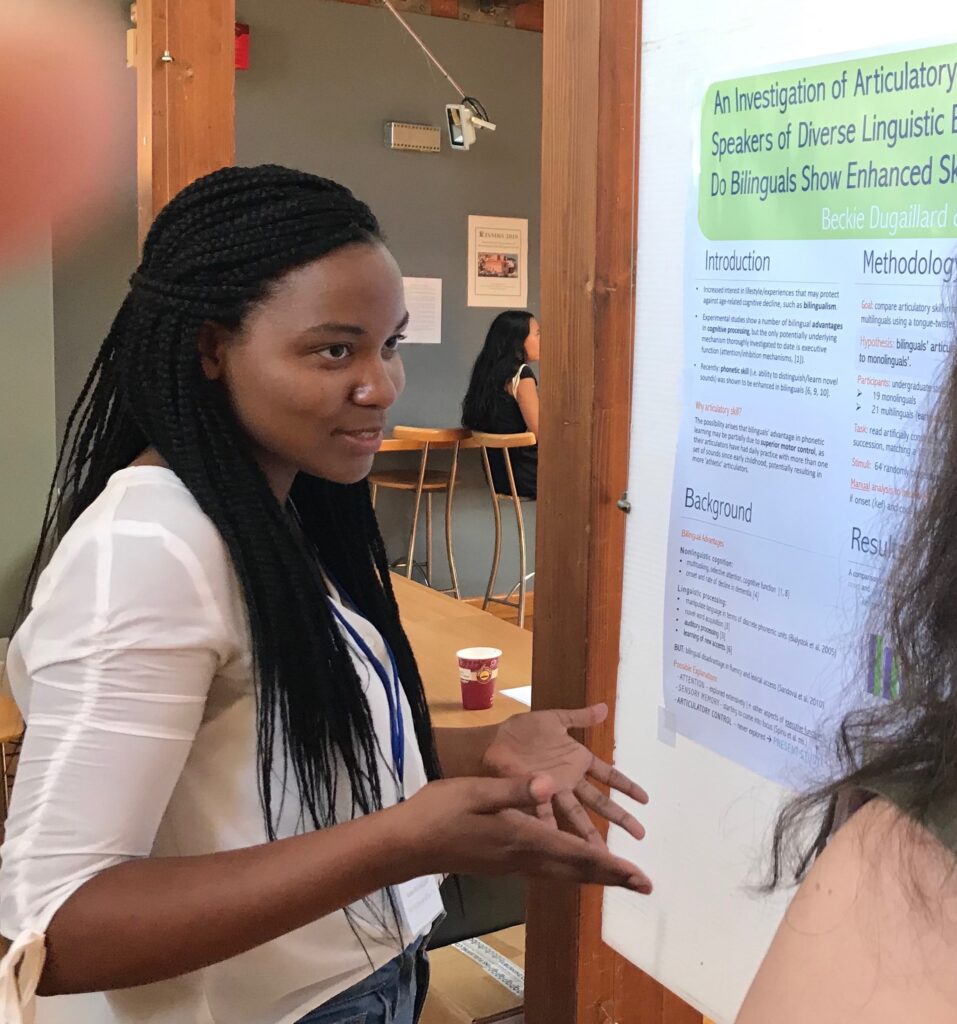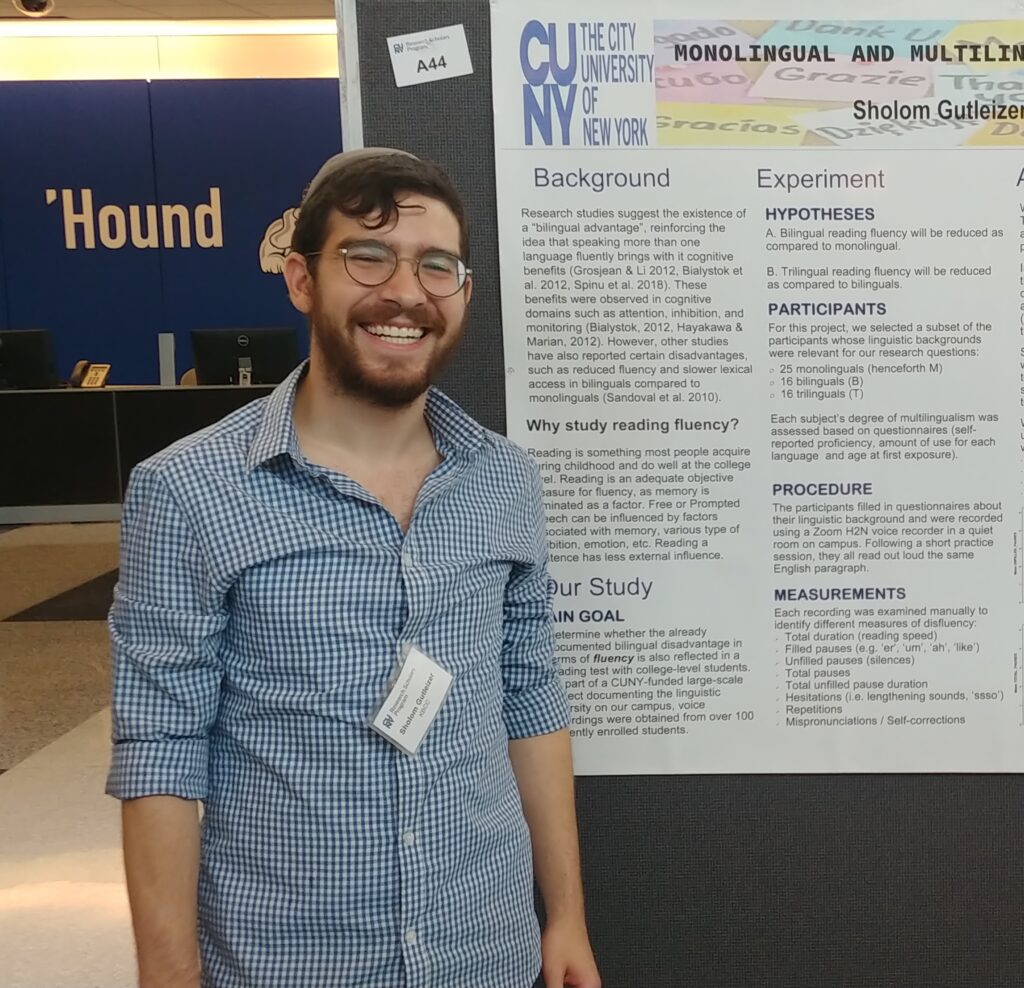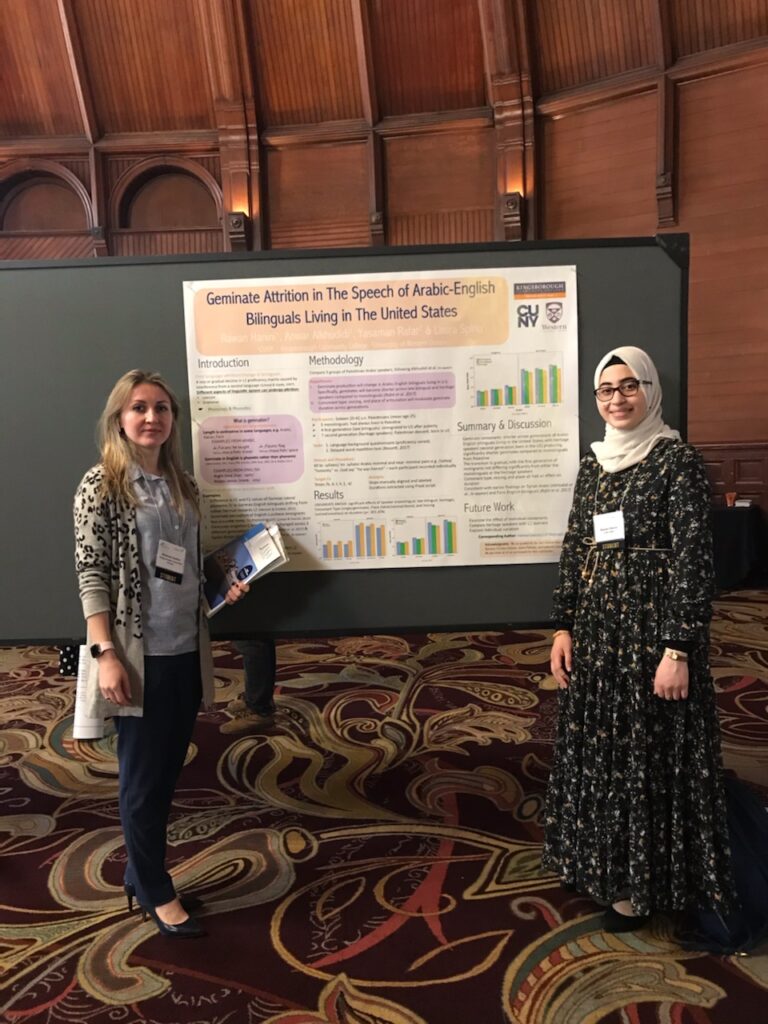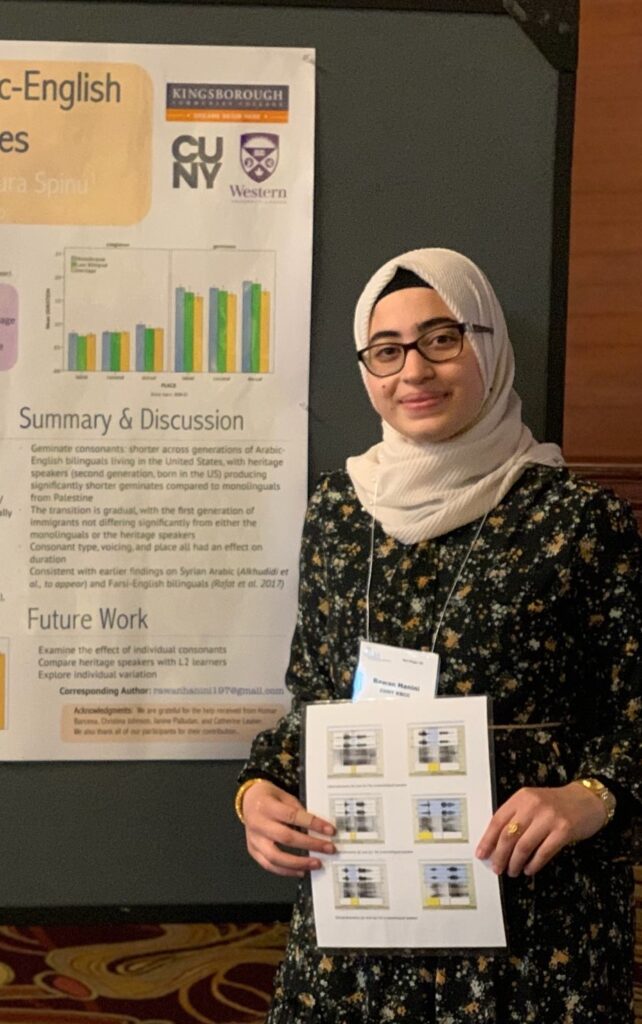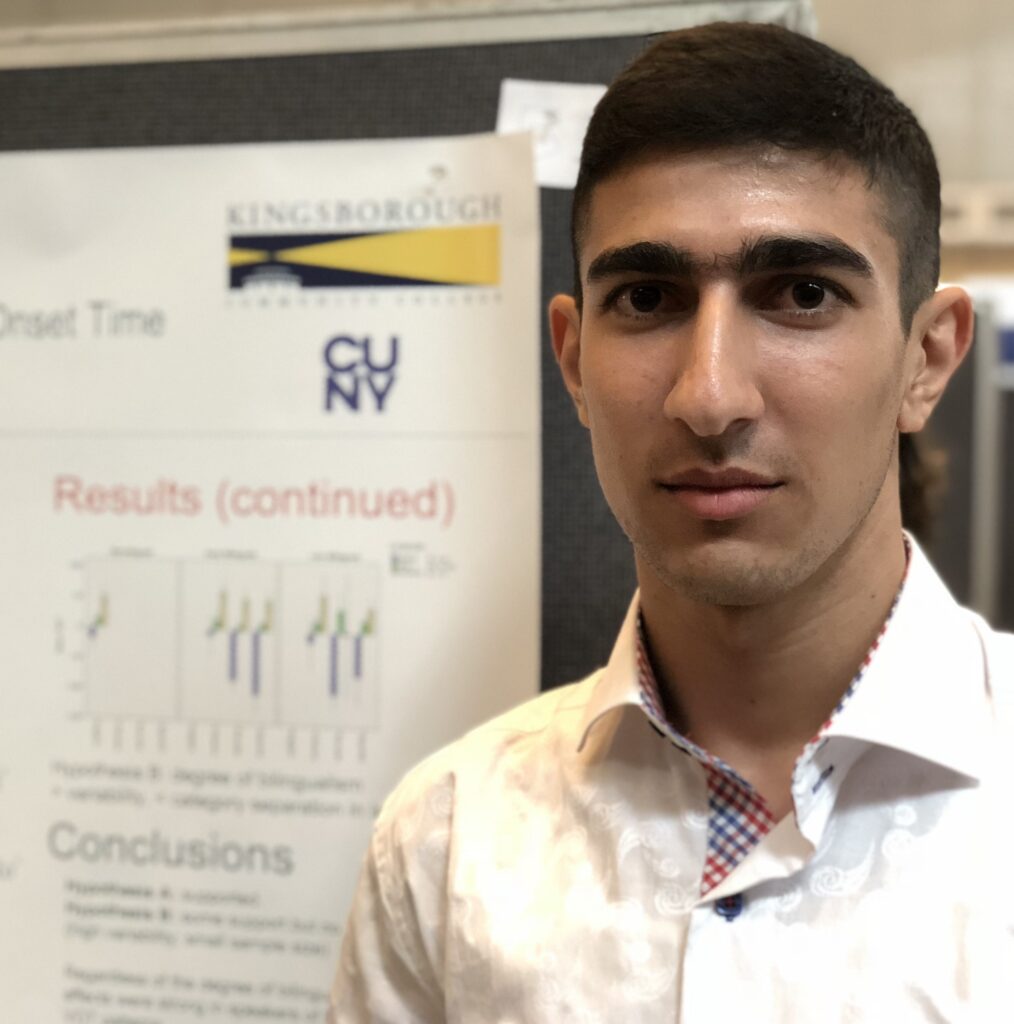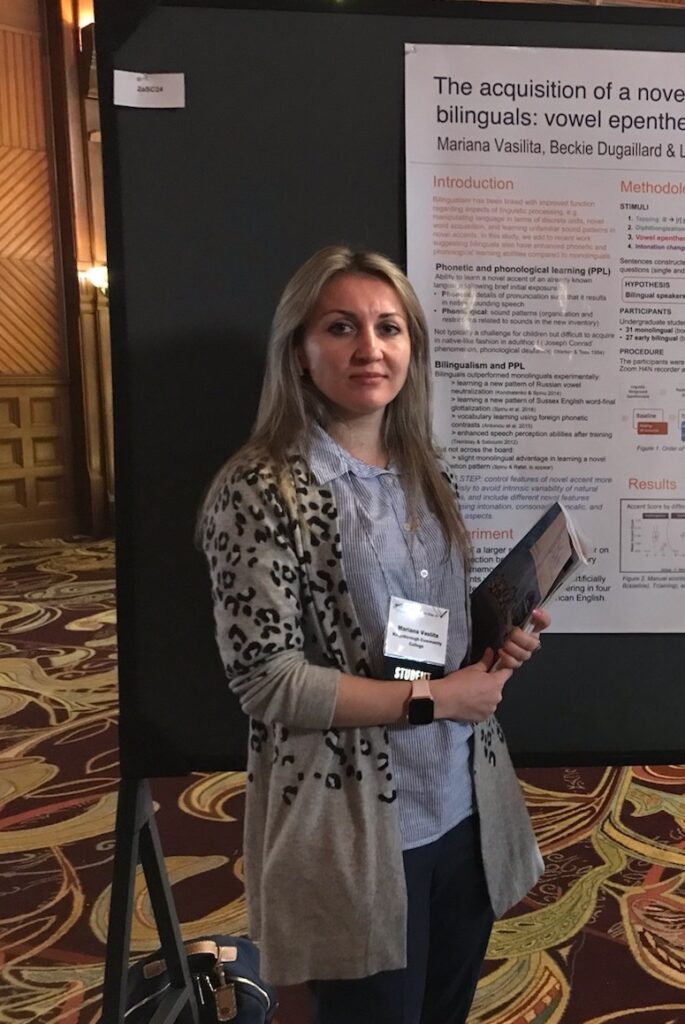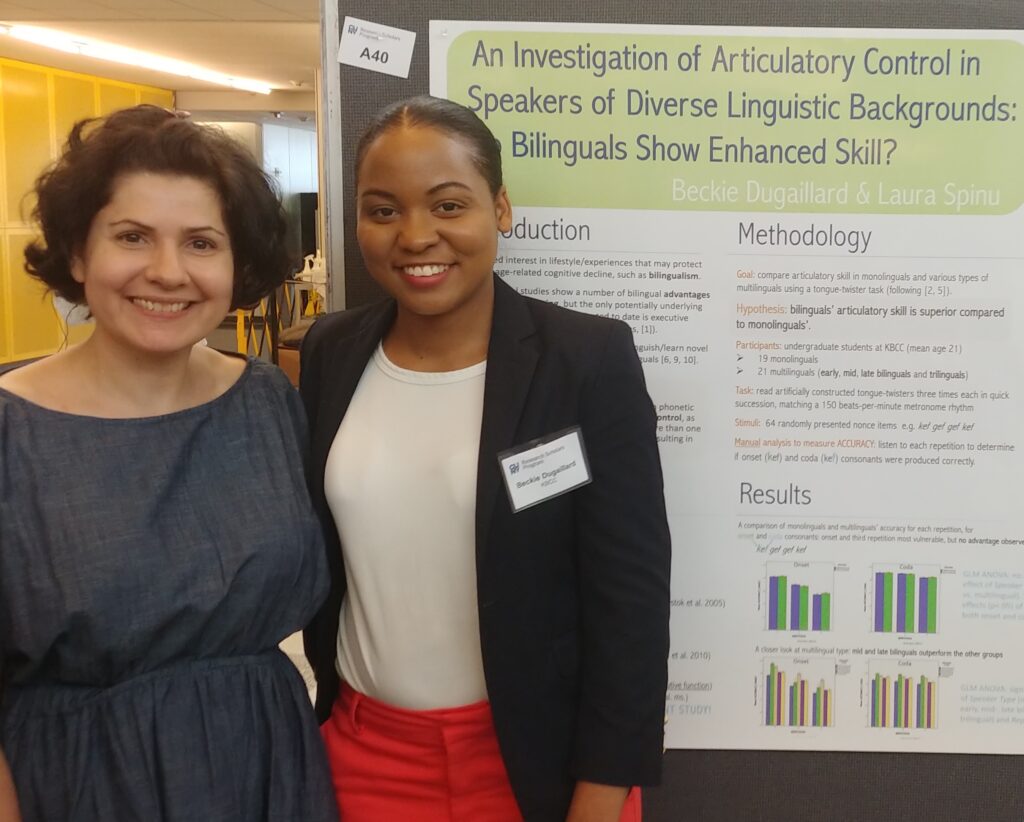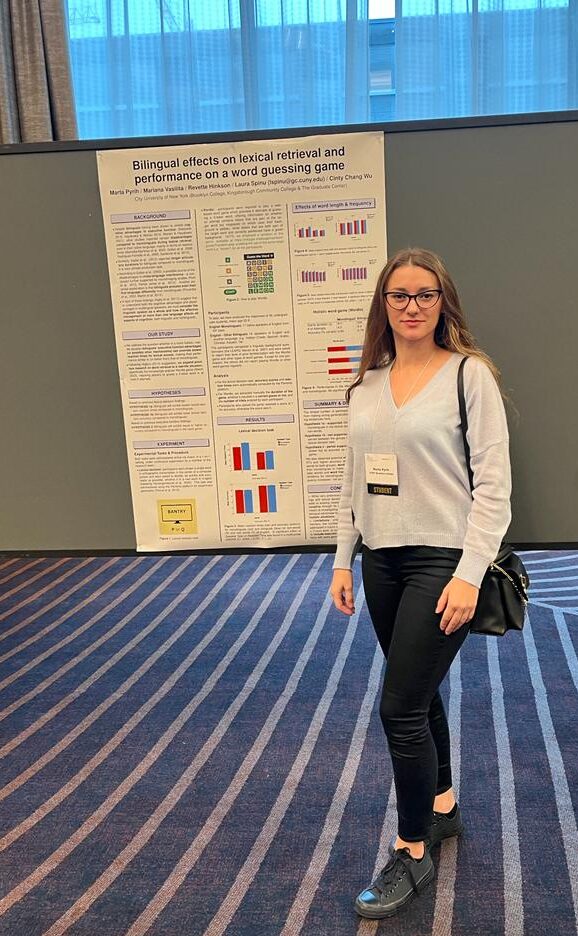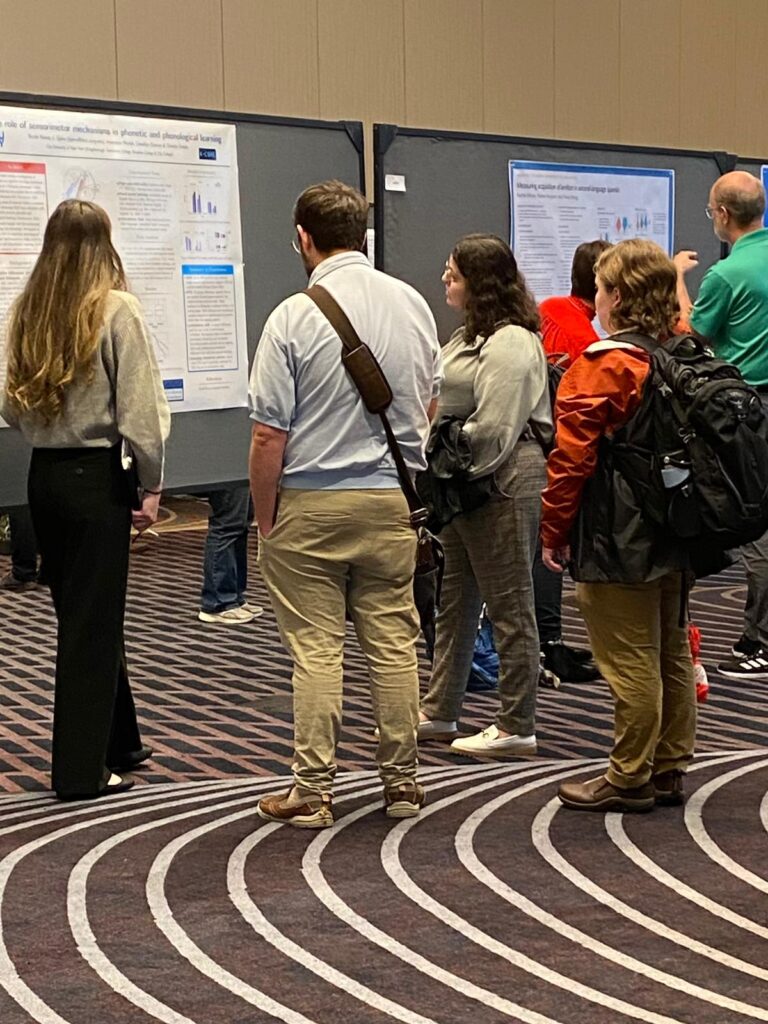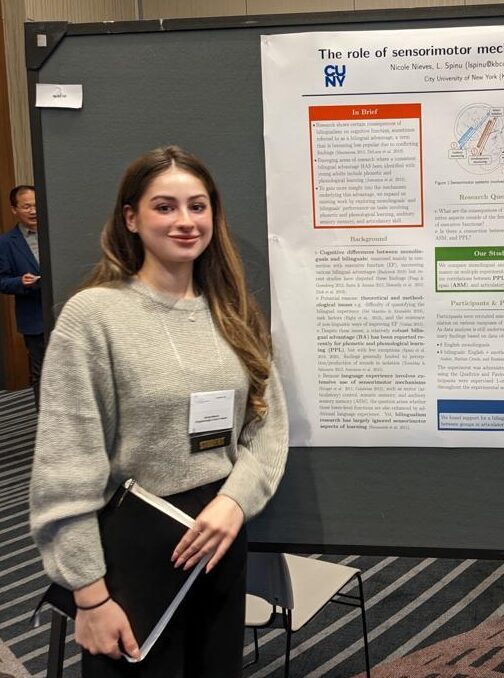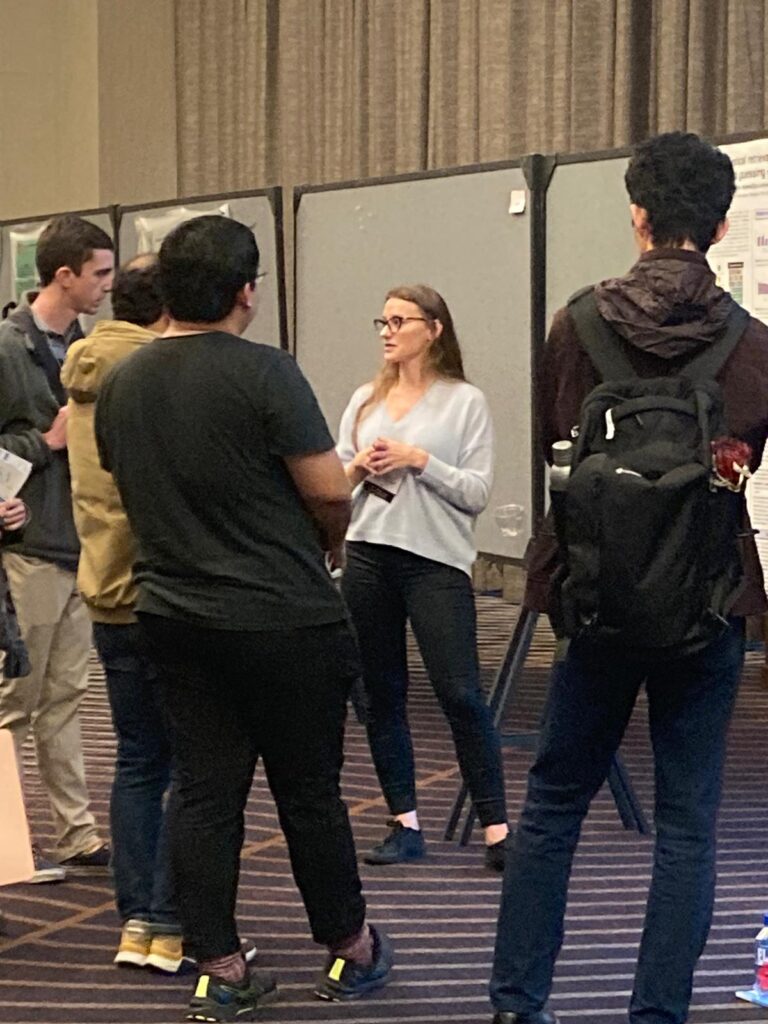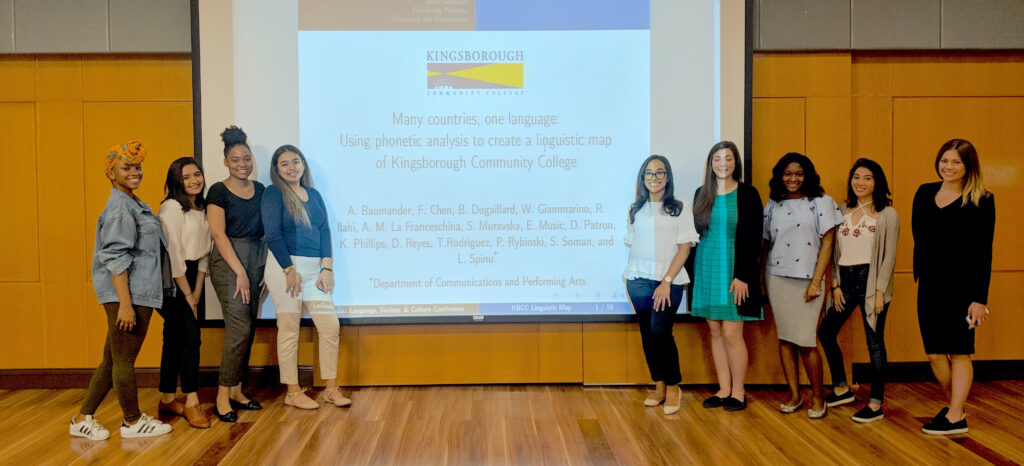Kingsborough Collaborative Research and Conference Bootcamp
K-CORE’s overarching goal is to train students to conduct collaborative experimental research projects and present them at conferences, providing STEM exposure and hands-on experiential training. K-CORE student research projects receive constant guidance from one or more faculty members and experienced student aides. Participants work in groups and submit abstracts to various conferences focusing on speech and language research. Students from any major are welcome to participate, as long as their projects address a speech/language-related topic.
Apply HERE
What is a K-CORE?

Image reproduced from the elegantly designed website Chaos Like Home.
We chose our name based on an acronym+blend of the words behind the concept: K(ingsborough)-CO(llaborative) RE(search). The term describes a mathematical concept, one that we loved right away. In particular, “The concept of a k-core was introduced to study the clustering structure of social networks” and this is exactly what we are, a network, a group of interconnected people who are learning from each other and working together towards many common goals. Our group grew from a 1-core to a 2-core, to a 18-core at the moment, and we will all see what’s next. If you are interested in joining us, please read the info on the Joining K-CORE page and then submit an application for the next cycle of the program. Feel free to contact us with any questions that you may have.
Current Research Assistants

Cinty Chang Wu started out as a student in Dr. Spinu’s classes, following which she became her mentee in the CUNY Research Scholars Program) program. She was simultaneously a student researcher under K-CORE and presented her poster “Exploring bilingual effects on iconic memory using 2D and 3D visuospatial recognition tasks” at the 187th meeting of the Acoustical Society of America in Chicago in May 2023. Cinty currently serves as a research assistant for K-CORE and is excited to be starting a position in 2025 as project manager on Dr. Spinu’s grant A Unified Approach to Establishing a Culture of Research: Employing a Toolkit of Common Tools and Processes, funded by the National Science Foundation.
Past Research Assistants





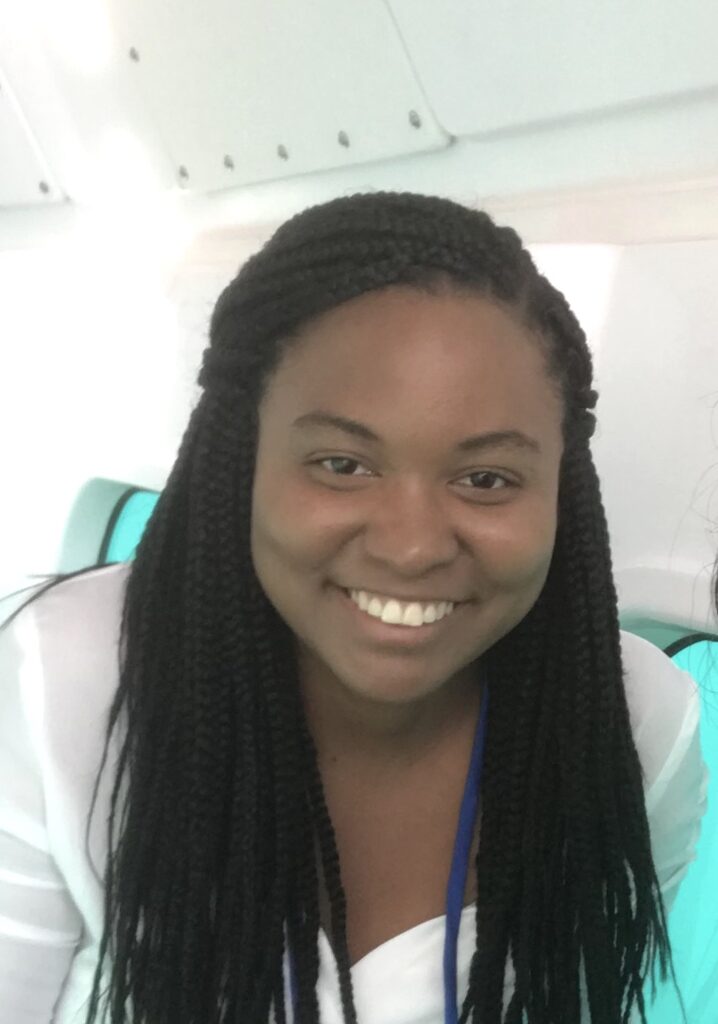
Selected papers first-authored by K-CORE students
- Hanini, R., Spinu, L., Rafat, Y. and Alkhudidi, A. Childhood language exposure: does early experience affect sound perception and production in speakers with reduced language proficiency? Rao, Rajiv (ed.). Forthcoming (late 2022/early 2023). The Phonetics and Phonology of Heritage Languages. Cambridge: Cambridge University Press.
- Dugaillard, B., & Spinu, L. (2019, December). An investigation of articulatory skill in monolingual and bilingual speakers. In Proceedings of the International Symposium on Monolingual and Bilingual Speech (pp. 31-37).
- Mosseri, N., & Ortega, J. A gamified approach to teaching the expression of emotion in English to native speakers of tone and stress languages. ESSLLI & WeSSLLI, 149.
- Ciccone, M., Hanini, R., & Sciannantena, M. A Cross-Linguistic Examination of Geminate Consonant Attrition. ESSLLI & WeSSLLI, 173.
Selected conference presentations by K-CORE students
2024
- The 187th Meeting of the Acoustical Society of America
- The connection between articulatory skill and higher-level executive function in monolinguals and bilinguals
- CUNY GC Speech-Language-Hearing Sciences Student Research Poster Day
- Exploring Articulatory Skill in Monolinguals and Bilinguals: An Ultrasound Study
- Is there is an additive effect of speaking more than two languages on the performance of mental arithmetic tasks?
- Examining the role of variability In L2 phonetic training
2023
- The 184th Meeting of the Acoustical Society of America
- Exploring bilingual effects on iconic memory using 2D and 3D visuospatial recognition tasks
- CUNY GC Speech-Language-Hearing Sciences Student Research Poster Day
- Research with Wordle: does slower bilingual performance on lexical decision tasks carry over to more holistic tasks involving word retrieval?
- Does articulatory skill differ by gender?
- Childhood language exposure: does early experience affect sound perception and production in speakers with reduced language proficiency?The role of sensorimotor mechanisms in phonetic and phonological learning
- Exploring bilingual effects on iconic memory using 2D and 3D visuospatial recognition tasks
- Learning a novel accent: does specific language background modulate phonetic and phonological learning in bilingual speakers?
2022
- The 183rd Meeting of the Acoustical Society of America
- The role of sensorimotor mechanisms in phonetic and phonological learning
- Bilingual effects on lexical retrieval and performance on a word guessing game
- Bilingualism Matters Research Symposium 2022
2021
- The 5th biennial meeting of the CUNY Language, Society and Culture Conference
- The 180th Meeting of the Acoustical Society of America
2020
- Northwest Linguistics Conference. Virtual presentations available:
- Annual Meeting of the Canadian Linguistic Association
- Web Summer School in Logic, Language, and Information (WESSLI)
- Acoustics Virtually Everywhere: The 179th Meeting of the Acoustical Society of America
- 12th International Seminar on Speech Production. Posters available online:
- https://issp2020.yale.edu/S09/franceschina_09_16_198_poster.pdf (Team 1)
- https://issp2020.yale.edu/S09/hanini_09_17_199_poster.pdf (Team 2)
- https://issp2020.yale.edu/S02/vasilita_02_27_175_poster.pdf (Team 3)
- https://issp2020.yale.edu/S09/mosseri_09_14_178_poster.pdf (Team 4)
- https://issp2020.yale.edu/S09/gilbert_09_13_177_poster.pdf (Team 5)
2019
- International Symposium on Monolingual and Bilingual Speech (Chania, Greece)
- 178th Meeting of the Acoustical Society of America (San Diego, CA)
